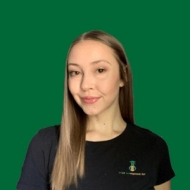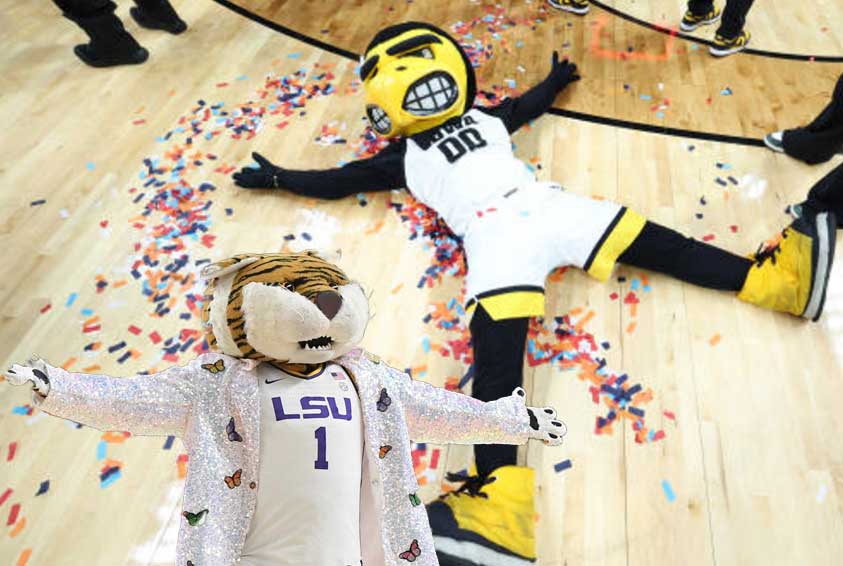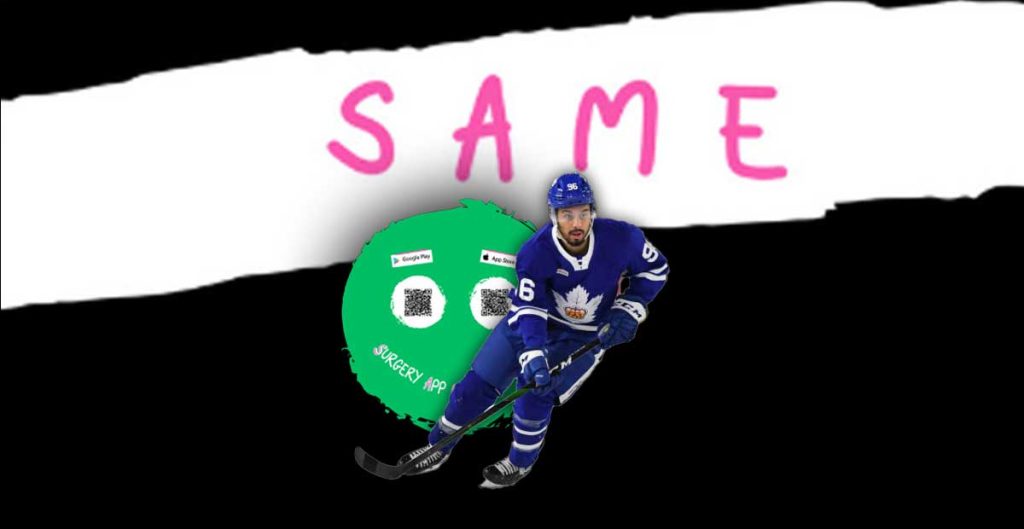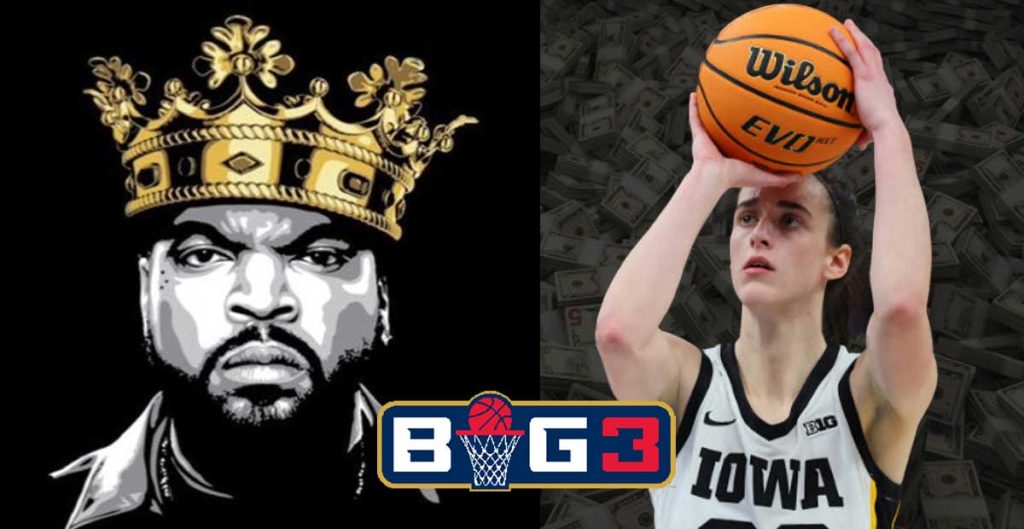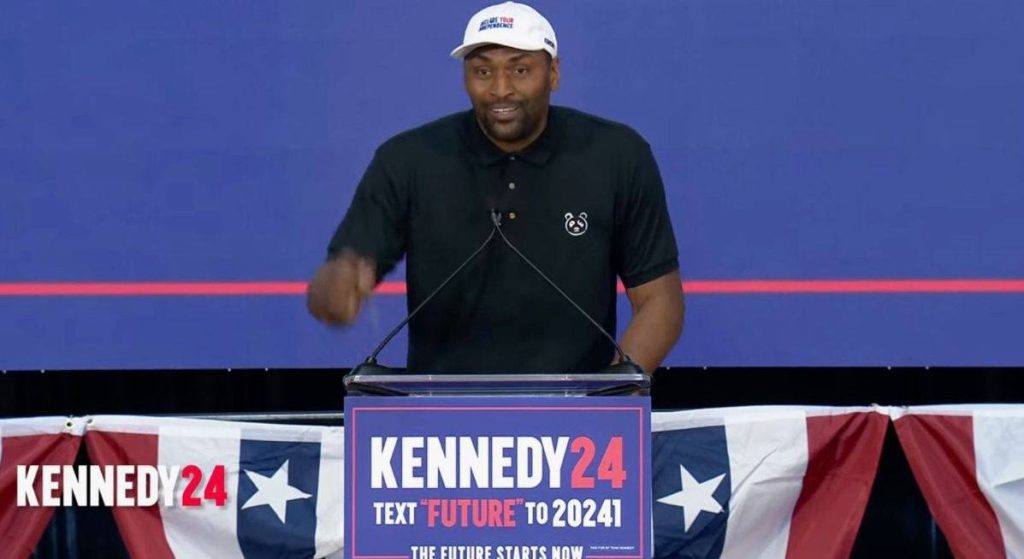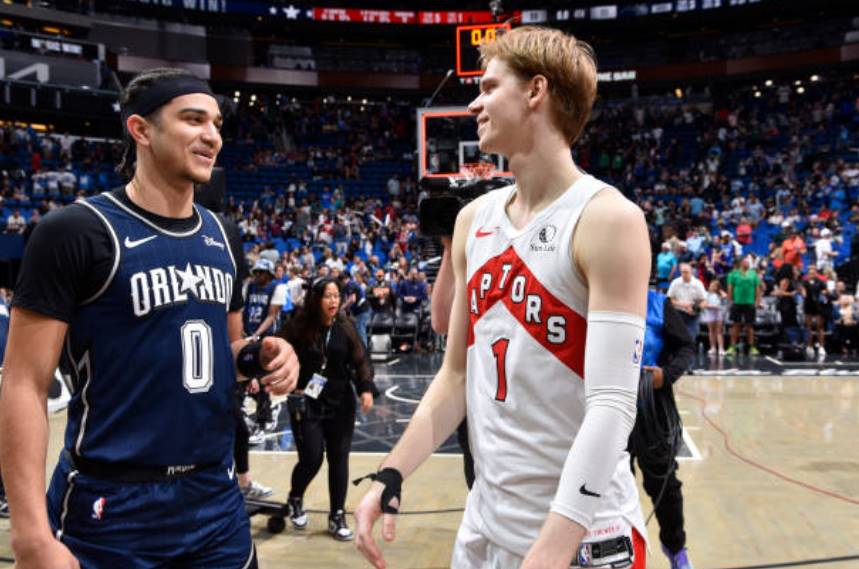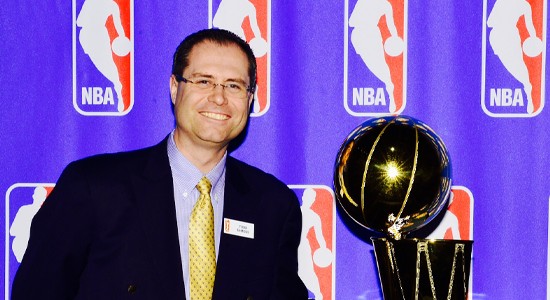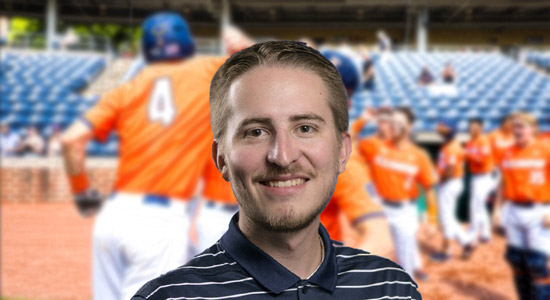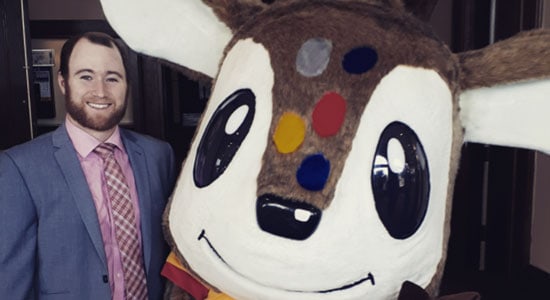
Masters Degree To Canada Games Council VP Of Sport & Games Is Aaron Bruce’s Course
Aaron Bruce | Vice President of Sport & Games | Canada Games Council

I think there were a number of factors that led to the final decision to move and pursue a career in sport management. A big one was the fact that I had an opportunity to make a career out of my passion, sport. Another factor was the unknown of it all.
Aaron Bruce
Vice President of Sport & Games
Canada Games Council
Tell us about your role as Vice President of Sport & Games with the Canada Games Council (CGC).
As VP, Sport & Games I provide leadership to the Sport & Games department. Most of the time, this means supporting my team in doing their jobs and ensuring we are contributing to the overall strategic priorities of the organization. Broadly speaking, my department is responsible for supporting Canada Games Host Societies, National Sport Organizations and Provincial/Territorial Canada Games Teams across the vast majority of operational elements of the Canada Games.
I currently have three highly effective team members who are each responsible for different areas, including sport operations, venue operations, mission (Team) services, medical services, volunteers, registration & accreditation, information technology, security and a few more.
Beyond the support to stakeholders, the Sport & Games department is also responsible to work with the Canada Games Council Sport Committee on various sport technical matters, including sport selection. Within the department, I am responsible for setting annual and quarterly performance objectives, developing and monitoring budget and leading staff. I also represent our department within the Canada Games Council’s Sr. Management team.
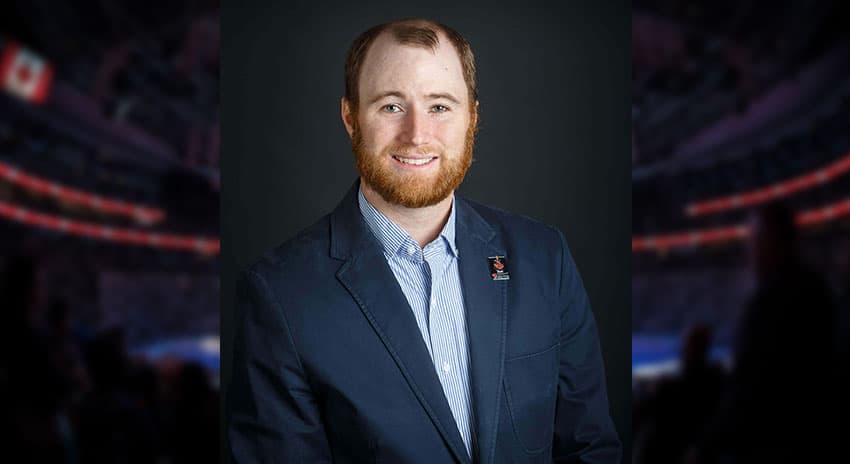
What does a typical day look like for you?
As of March 2020, the idea of “typical” has changed greatly. Prior to March 2020 (pre-COVID I spent a fair amount of time on the road, visiting with host communities for upcoming Games for various meetings and conferences. I spent the equivalent of one week a month on the road and really enjoyed it. Getting to travel across Canada was one of the things that drew me to the Canada Games Council in the first place all those years ago. I had just returned home from a trip to St. Catharines, ON when the decision was made to move to remote work and within 48 hours much of Ontario was in lockdown.
I think one of the big positives that has come out of the COVID restrictions is our ability to successfully serve our stakeholders virtually. As much as I love the travel, I recognize that flying all over the country isn’t the most economically or environmentally friendly activity and the past six months have provided us with a good testing ground to see what we can successfully deliver virtually vs in person.
Beyond the travel, my typical day is similar to most typical days of an administrator. I spend a fair amount of time responding to emails, meeting with stakeholders and meeting with internal team members.
I know that you have been with the CGC for 10 years now. Would you say your path to your current position was quite easy or rather challenging, and can you discuss why?
I am extremely grateful to have been able to remain with the CGC for the past 10 years. I have been the benefactor of being in the right place at the right time and having supervisors who believed in me.
In 2010 I was working for Squash Canada when I applied for, and got, a coordinator position with the CGC. I spent two years as a coordinator and was promoted to a manager in late 2012.
Following the 2013 Canada Games, I had the opportunity to take an acting role as Director of Sport and Games for one year. When the year was up, I went back to my manager position but was given expanded responsibilities as a result of the experience I had gained in the acting role.
In 2016, I had another opportunity in the acting position as Director of Sport & Games for one year. At the end of the one year post, the CGC did a reorganization, creating separate departments for sport and for games. I was appointed VP Sport.
In early 2020, the CGC completed another reorganization and my portfolio was expanded to include both Sport and Games overweight functions.
I am privileged that my path has been fairly straight forward. I was able to move vertically from coordinator to vice president within the same organization.
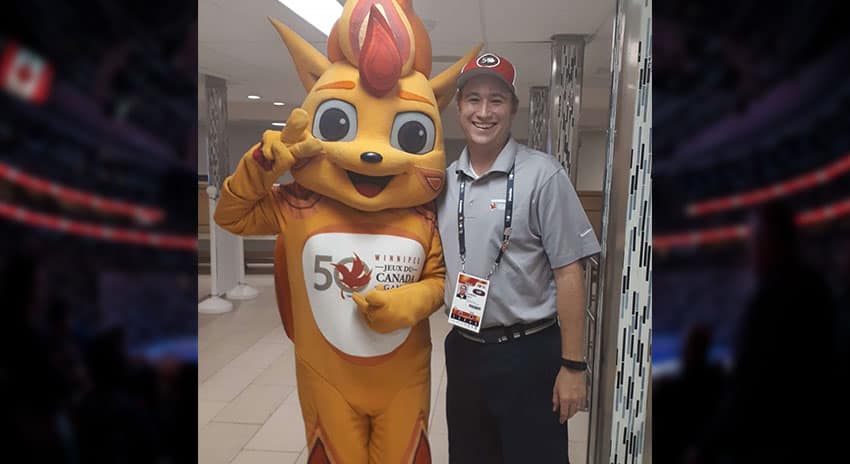
What are some of the biggest challenges you face in your role and within the CGC?
What makes the Canada Games great as an entity and what makes it a great place to work is that it is so centrally located in the Canadian sport system. Our stakeholders include communities, the Federal Government, Provincial/Territorial Governments, National Sport Organizations, Provincial/Territorial Sport Organizations and Multi-Sport Organizations. Each of these groups has a role to play in the Canadian sport system, from playground to podium to active for life. The Canada Games is one of the few (maybe only) events in which all these stakeholders come together.
It is a great representation of the federated model of Canadian sport (and Canadian federalism in general). However, each of these groups has their own priorities, which often conflict with each other. Without a doubt, the majority of challenges I deal with are balancing the priorities of different stakeholders and finding compromises that work for everyone.
What strategies do you use to overcome those challenges?
Ultimately, it is all about relationships. Building and maintaining relationships is the single most important factor in being able to navigate through challenges.
Strong relationships lead to respect, trust and empathy, critical elements in successfully managing difficult conversations and heated debates.
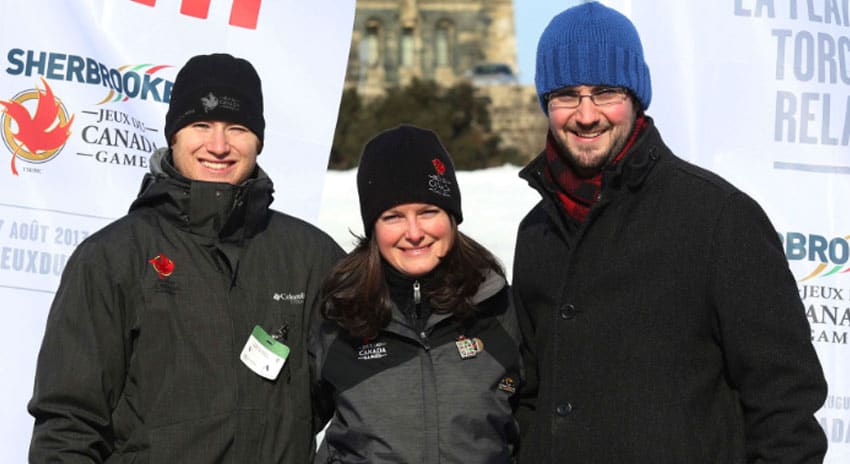
You hold a Masters degree in Sports Administration. Why was it important for you to further your education in this field? What attracted you to the sports industry?
I first did my undergrad, graduating with a Bachelor of Science in Kinesiology and a Minor in Biology. I often tell people I ended up in Sport Management because I wasn’t smart enough to be a doctor. While there is some truth to that, my journey to a career in sport management began late in my third year of my undergrad as I started to look at “what was next”.
I had grown up an athlete, playing hockey, golf, badminton and volleyball in club and school sport systems. I also had a love for the outdoors, hiking, canoeing and camping. While at university, I worked for the City of Waterloo maintaining a ball diamond and later as a facility operator for an indoor soccer centre. Working in maintenance and a somewhat administrative role in sport got me thinking that a career in municipal recreation might be for me.
In my fourth year, I took a few human resource electives that I enjoyed, which piqued my interest further. Lastly, I took a leisure studies course in my fourth year on outdoor resource management, which looked at the parks systems management and I saw a pretty strong link between that and sport admin. Early in my fourth year, I started to look into a few Universities offering Masters in Sport Administration/Management, which led me to complete exactly that.
For me personally, doing a Masters in Sport Administration was important because I didn’t have any formal training in the field. I didn’t see it as realistic to break into the field with a science degree. I ended up in Ottawa because I wanted a course-based program with an internship opportunity, of which there weren’t too many in Ontario at the time.
When did you realize you wanted to pursue a career in the sports industry?
It was really in the summer between my third and fourth years of my undergrad that I started to see it as a viable career option. However, I am not sure I even was committed to it at that point. During my fourth year, in addition to applying for my Masters, I also applied to a Masters program in nutrition and an advanced diploma in lab technician at a private college. So, even in my last year, a career in science was still on my mind.
I think there were a number of factors that led to the final decision to move and pursue a career in sport management. A big one was the fact that I had an opportunity to make a career out of my passion, sport. Another factor was the unknown of it all. I had never been to Ottawa, didn’t know anyone in Ottawa, didn’t know anyone at, or who went to UOttawa and I had no educational background in business, management or sport admin, it felt like an adventure, a new journey.
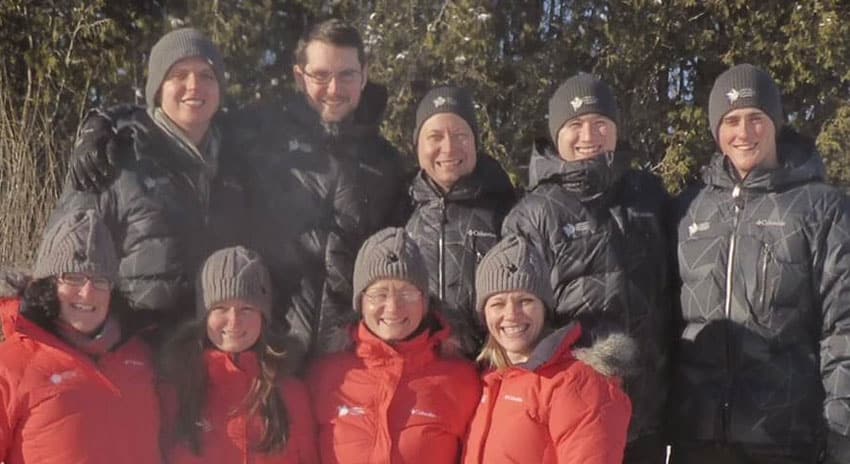
What are some aspects of working in sport, you didn’t learn in school that you’ve acquired through experience in the field?
Communicating with people is the biggest skill/ability I had to learn in the field. There are a ton of little practical items I had to learn through experience, including, how to write a professional email, briefing note, memo, how to manage a meeting and how to utilize productivity applications (MS Office, GSuite, etc) to their full potential for presentations and data collection/analysis.
What would you include on a list of your top 5 – 7 biggest accomplishments (or moments) between working in and playing sport?
- The opening ceremonies of the 2017 Canada Games. The 2017 Games were the first I had worked on from start to finish, from bid to host society wrap up.
- Getting final approval from the CGC Board of Directors on the Canada Games Gender Inclusion Policy in 2019. I led the development of the policy with my team and the CGC Sport Committee.
- Being appointed to the Sport Dispute Resolution Centre of Canada Board of Directors in 2019.
- The launch of the online Canada Games alumni database. Jacob McInnis deserves the majority of the credit for this, but I like to think I played a small role.
- Having the opportunity to be the lead CGC staff on the 2023 & 2021 Canada Games bid processes.
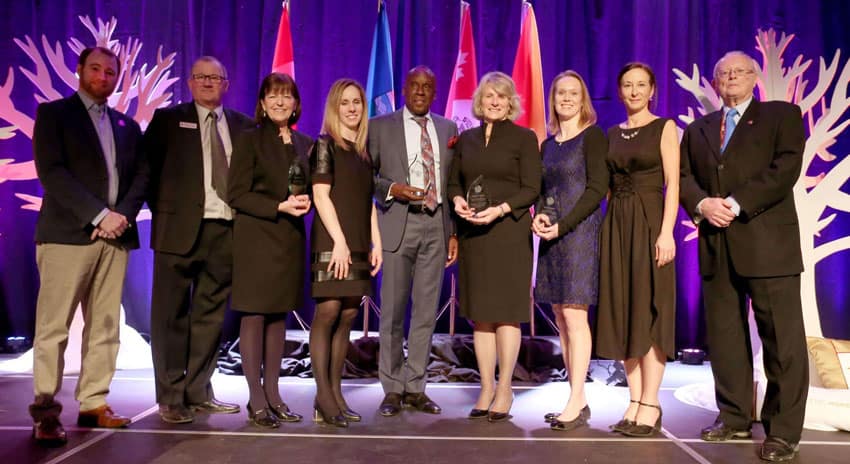
[get_current_post_author_pic_and_name]
For many, pursuing a Masters degree after just completing an undergraduate degree can be overwhelming. Yet, for others, that situation might just be the best way to kickstart a career. For Aaron Bruce, this was his way of breaking into an industry he had always been passionate about. Although his future was unknown, he took a chance which led to his current role as Vice President of Sport & Games with the Canada Games Council. If there’s any advice this feature can offer aspiring sports industry professionals, it’s not to be afraid of the unknown but take chances and follow your passions.
The Latest

